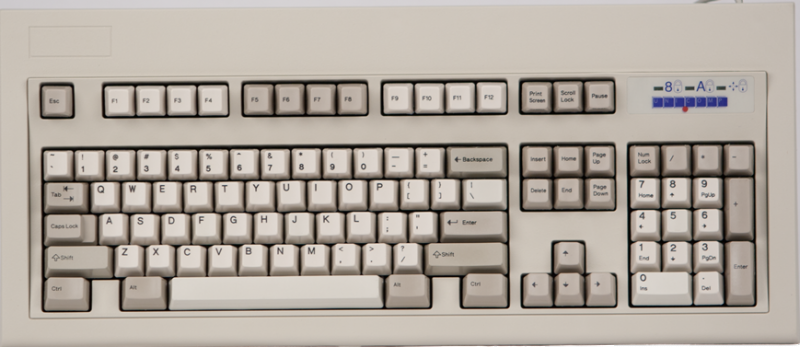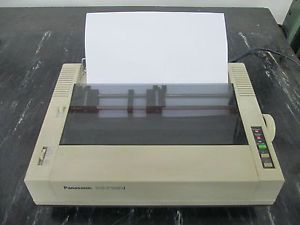No PC build is complete without a decent set of peripherals, and of all the parts that go into one, the keyboard probably ties with cases when it comes to catering a wide variety of tastes.
You are using an out of date browser. It may not display this or other websites correctly.
You should upgrade or use an alternative browser.
You should upgrade or use an alternative browser.
The Best Keyboards: Enthusiast, Wireless, Gaming & More
- Thread starter Humza
- Start date
Sausagemeat
Posts: 1,597 +1,423
I bought the steelseries Apex 7. It’s identical to the pro save for the pressure sensitive keys. But it was £130 rather than £200. And I haven’t ever gone “dam I wish I could change the actuation point”.
The screen is pointless too, if you’ve time you can make an app to show an in game thing if you like, a health bar or something. I haven’t bothered, I just have it showing hardware info like RAM usage and temps. Oh and it has burn in after just over a year.
The screen is pointless too, if you’ve time you can make an app to show an in game thing if you like, a health bar or something. I haven’t bothered, I just have it showing hardware info like RAM usage and temps. Oh and it has burn in after just over a year.
Avro Arrow
Posts: 3,721 +4,822
Meh, I've tried all of the keyboards at Canada Computers and none of them were as good as the old IBM Model M keyboard. When I found out that Unicomp was now making them after buying up all of the old patents, I immediately bought one of their Classic 101-key keyboards. When I got the thing, I was excited as hell because I hadn't touched one of these babies in over 20 years. I tell ya, it was like stepping back in time when I first tried typing with it and my typing speed increased by 4wpm over the Logitech that I was using. Sure it was $200CAD with shipping but these keyboards feel incredible and their life spans aren't measured in years, but DECADES. These things are SOLID with steel frames and incredible tactile response due to their mechanical buckling spring design. All mechanical keyboards made since are just attempts at re-creating this legendary input device. Anyone who has used it knows what I'm talking about and everyone who tries it for the first time says that it feels like it's magic:

Back in the early 90s, my dad used to say, "Companies like Acer, Dell, HP, Everex, and Compaq managed to make their actual computers as good as IBM but the one thing that they could never duplicate was the keyboard." and boy, was he ever right! Now that Unicomp has all of the old patents and makes them in the original plants, the legend is back and while it's not the least bit flashy-looking, there has NEVER been a better wired keyboard made since. Of course, I do have a soft spot for the 84-key IBM Model F that came with my IBM PC:

Its click was so pronounced that you cold hear it over the sound of our Panasonic KX-P1091 printer and man, that thing was LOUD!:

Is it weird that I still remember the model number of a printer my dad bought before I was 9 years old? I imagine it probably is but I was a little techie even back then.

Back in the early 90s, my dad used to say, "Companies like Acer, Dell, HP, Everex, and Compaq managed to make their actual computers as good as IBM but the one thing that they could never duplicate was the keyboard." and boy, was he ever right! Now that Unicomp has all of the old patents and makes them in the original plants, the legend is back and while it's not the least bit flashy-looking, there has NEVER been a better wired keyboard made since. Of course, I do have a soft spot for the 84-key IBM Model F that came with my IBM PC:

Its click was so pronounced that you cold hear it over the sound of our Panasonic KX-P1091 printer and man, that thing was LOUD!:

Is it weird that I still remember the model number of a printer my dad bought before I was 9 years old? I imagine it probably is but I was a little techie even back then.
Last edited:
Gimp65
Posts: 84 +169
What is Das Keyboard doing here ?
I have owned the Das keyboard 4 and out of all they keyboards I have had for in the last 30 years, das keyboard 4 has been the absolute worst. In short Das keyboard represents their products as high end at a high end price, in reality Das keyboards are low quality parts at a high end price.
The Das keyboard 4 had rough edges, rattly keys, stiff inflexible cable, printed legends, cheap ABS keycaps, poor latency around 12ms - besides the MX switches - Nothing in the Das keybaord 4 is quality stuff, its all low end. It belongs in the low end catagory at a MUCH lower price tag, even in that catagory it will struggle against other very cheap mechanical keyboards.
In keyboard community's Das is reffered to as one the worst buys ever, its almost a curseword mentioning this brand there.
I think Rtings.com are way to generous saying this "The Das Keyboard 4 Professional is decent for office use" - Anyway, if all they give it is "decent for office use" then what in the world justifies its high price tag.
If you are looking for a good keyboard stay clear of Das keyboard, the name may suggest something of German quality, in reality it couldn't be further from the truth. Its an expensive POS in a box.
I have owned the Das keyboard 4 and out of all they keyboards I have had for in the last 30 years, das keyboard 4 has been the absolute worst. In short Das keyboard represents their products as high end at a high end price, in reality Das keyboards are low quality parts at a high end price.
The Das keyboard 4 had rough edges, rattly keys, stiff inflexible cable, printed legends, cheap ABS keycaps, poor latency around 12ms - besides the MX switches - Nothing in the Das keybaord 4 is quality stuff, its all low end. It belongs in the low end catagory at a MUCH lower price tag, even in that catagory it will struggle against other very cheap mechanical keyboards.
In keyboard community's Das is reffered to as one the worst buys ever, its almost a curseword mentioning this brand there.
I think Rtings.com are way to generous saying this "The Das Keyboard 4 Professional is decent for office use" - Anyway, if all they give it is "decent for office use" then what in the world justifies its high price tag.
If you are looking for a good keyboard stay clear of Das keyboard, the name may suggest something of German quality, in reality it couldn't be further from the truth. Its an expensive POS in a box.
mrSister
Posts: 105 +130
Das and Corsair? What a joke. Those two could easily be replaced by a Ducky and you get a better board for a better price.
dualkelly
Posts: 306 +423
I miss those old keyboards with no windows key. I truly despise the windows key nonsense. why the hell is it there.Meh, I've tried all of the keyboards at Canada Computers and none of them were as good as the old IBM Model M keyboard. When I found out that Unicomp was now making them after buying up all of the old patents, I immediately bought one of their Classic 101-key keyboards. When I got the thing, I was excited as hell because I hadn't touched one of these babies in over 20 years. I tell ya, it was like stepping back in time when I first tried typing with it and my typing speed increased by 4wpm over the Logitech that I was using. Sure it was $200CAD with shipping but these keyboards feel incredible and their life spans aren't measured in years, but DECADES. These things are SOLID with steel frames and incredible tactile response due to their mechanical buckling spring design. All mechanical keyboards made since are just attempts at re-creating this legendary input device. Anyone who has used it knows what I'm talking about and everyone who tries it for the first time says that it feels like it's magic:

Back in the early 90s, my dad used to say, "Companies like Acer, Dell, HP, Everex, and Compaq managed to make their actual computers as good as IBM but the one thing that they could never duplicate was the keyboard." and boy, was he ever right! Now that Unicomp has all of the old patents and makes them in the original plants, the legend is back and while it's not the least bit flashy-looking, there has NEVER been a better wired keyboard made since. Of course, I do have a soft spot for the 84-key IBM Model F that came with my IBM PC:

Its click was so pronounced that you cold hear it over the sound of our Panasonic KX-P1091 printer and man, that thing was LOUD!:

Is it weird that I still remember the model number of a printer my dad bought before I was 9 years old? I imagine it probably is but I was a little techie even back then.
Clearly that's not been our experience. I have owned a few Das keyboards over the years and know several people (staffers and not) who do really well long term with them. Hence our recommendation.I have owned the Das keyboard 4 and out of all they keyboards I have had for in the last 30 years, das keyboard 4 has been the absolute worst. In short Das keyboard represents their products as high end at a high end price, in reality Das keyboards are low quality parts at a high end price.
So... was my Patriot Viper V770 a bad choice?
I like it and got it on sale. But the programming software is garbage. Still, the keys feel nice with the newer version Kailh Red's.
At the end of the day, my mouse matters more to me than the KB. Each to their own!
I like it and got it on sale. But the programming software is garbage. Still, the keys feel nice with the newer version Kailh Red's.
At the end of the day, my mouse matters more to me than the KB. Each to their own!
Avro Arrow
Posts: 3,721 +4,822
For dumb people my friend, for dumb people.I miss those old keyboards with no windows key. I truly despise the windows key nonsense. why the hell is it there.
DonquixoteIII
Posts: 186 +131
It seems that in your description of Steel Series Apex Pro you left out the whole point of the keyboard (and much of the expense) by omitting to mention that the Pro uses magnetic hall effect switches with a life time measured in the millions of strokes...
My only issues are the non-replaceablity of the backlighting's LEDs. A keyboard built to last dozens of years should not have ANY non-replaceable parts. Aand then there is the weirdness of the upside-down keycaps, where the uppercase (shifted) symbol is on the bottom... Touch typists won't notice, but for those of us that sight-type it takes some head-rearranging.
My only issues are the non-replaceablity of the backlighting's LEDs. A keyboard built to last dozens of years should not have ANY non-replaceable parts. Aand then there is the weirdness of the upside-down keycaps, where the uppercase (shifted) symbol is on the bottom... Touch typists won't notice, but for those of us that sight-type it takes some head-rearranging.
The Apex Pro's 'OmniPoint' mechanical switches and their ability to allow adjustable actuation have been mentioned as a differentiating factor for this keyboard. Discussing the magnetic hall effect seems better suited to a detailed technical review of the hardware (which this feature isn't).It seems that in your description of Steel Series Apex Pro you left out the whole point of the keyboard (and much of the expense) by omitting to mention that the Pro uses magnetic hall effect switches with a life time measured in the millions of strokes...
My only issues are the non-replaceablity of the backlighting's LEDs. A keyboard built to last dozens of years should not have ANY non-replaceable parts. Aand then there is the weirdness of the upside-down keycaps, where the uppercase (shifted) symbol is on the bottom... Touch typists won't notice, but for those of us that sight-type it takes some head-rearranging.
Also, readers interested in learning more about these switches can look up OmniPoint, and they'll come across the points you've mentioned. Their durability is admirable, but then traditional mechanical switches found in rivals are also rated for millions of keystrokes.
Gimp65
Posts: 84 +169
Why do techspot keep placing something sub par like Das keyboard on top ? That thing belongs in the low end at a premium price end category.
It has cheap ABS keycaps with printed legends(they might have upgraded to laser etched, still cheap), cheap wobbly stabilizers, forgot the brand, but it's some of the worst you can get. This keyboard dosnt have much going for it besides it looks pretty good and carries a german brand name that makes you think it's something premium. - It's not, its a low end pos board with cheap parts used at a premium price. For less that what das keyboard cost, you can get a quality board with quality components, just to name a brand or two, Ducky, leo, filco, or basically any other, most keyboards are decent, das keyboard isnt
It has cheap ABS keycaps with printed legends(they might have upgraded to laser etched, still cheap), cheap wobbly stabilizers, forgot the brand, but it's some of the worst you can get. This keyboard dosnt have much going for it besides it looks pretty good and carries a german brand name that makes you think it's something premium. - It's not, its a low end pos board with cheap parts used at a premium price. For less that what das keyboard cost, you can get a quality board with quality components, just to name a brand or two, Ducky, leo, filco, or basically any other, most keyboards are decent, das keyboard isnt
Why do techspot keep placing something sub par like Das keyboard on top ? That thing belongs in the low end at a premium price end category.
I've been reading about this thing with Das... and it seems to come from the mechanical keyboard subreddit, where there's growing hate towards Das. Some of it may be justified. I see comments in there from people who bought and use Das keyboards just fine, while others talk about lower quality control and the whole fiasco of not shipping products on schedule.
I've owned several Das products as have other staff members alongside the likes of WASD, Leopold, Corsair, etc. and our recommendations come from that experience. With that said, we'll start preparing a new roundup of top mechanical keyboards from the likes of Ducky, Leopold, Filco, etc. see what we can get and pit it against a Das. Should be pretty interesting and we'll update our guide also based on those findings later in 2022.
Similar threads
- Replies
- 16
- Views
- 381
- Replies
- 15
- Views
- 582
- Replies
- 17
- Views
- 613
Latest posts
-
Doom: The Dark Ages, 36 GPU Benchmark
- Strawman replied
-
Doom: The Dark Ages discs contain almost no data, require full game downloads
- Thrackerzod replied
-
Google's 'G' logo gets a gradient refresh after nearly a decade
- Str8Shot replied
-
TechSpot is dedicated to computer enthusiasts and power users.
Ask a question and give support.
Join the community here, it only takes a minute.
